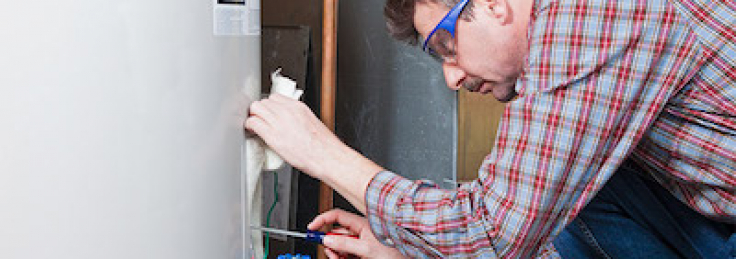Every person seems to have their own views involving Common Problems with Your Home Water Heater.

Picture beginning your day without your routine warm shower. That currently sets an inadequate tone for the rest of your day.
Every residence needs a reputable water heater, yet only a few know how to manage one. One very easy means to maintain your hot water heater in top shape is to look for mistakes consistently and also repair them as soon as they appear.
Keep in mind to turn off your water heater before smelling about for faults. These are the hot water heater mistakes you are most likely to experience.
Water also hot or as well cool
Every hot water heater has a thermostat that figures out how warm the water obtains. If the water entering into your house is too warm regardless of setting a convenient optimum temperature level, your thermostat could be damaged.
On the other hand, too cold water might be because of a fallen short thermostat, a busted circuit, or incorrect gas circulation. For example, if you make use of a gas hot water heater with a damaged pilot burner, you would obtain cold water, even if the thermostat is in perfect problem. For electric heaters, a blown fuse may be the culprit.
Lukewarm water
No matter just how high you established the thermostat, you will not obtain any type of warm water out of a heating unit well past its prime. A water heater's effectiveness may decrease with time.
You will additionally get lukewarm water if your pipes have a cross connection. This indicates that when you activate a faucet, hot water from the heating unit moves in along with regular, cold water. A cross link is very easy to spot. If your hot water taps still run after shutting the hot water heater shutoffs, you have a cross link.
Odd noises
There are at the very least 5 type of sounds you can hear from a water heater, but the most typical interpretation is that it's time for the hot water heater to retire.
To start with, you need to be familiar with the typical sounds a water heater makes. An electric heating unit might seem different from a gas-powered one.
Standing out or banging sounds generally imply there is a slab of sediment in your containers, and also it's time to cleanse it out. On the other hand, whistling or hissing sounds may simply be your valves letting some stress off.
Water leakages
Leakages might originate from pipes, water links, valves, or in the worst-case scenario, the storage tank itself. Over time, water will corrode the tank, and also discover its way out. If this occurs, you need to change your hot water heater immediately.
Nevertheless, prior to your modification your entire tank, make certain that all pipelines remain in place which each shutoff functions flawlessly. If you still require help identifying a leakage, call your plumber.
Rust-colored water
Rust-colored water means among your hot water heater parts is corroded. Maybe the anode rod, or the tank itself. Your plumber will certainly have the ability to identify which it is.
Not enough warm water
Water heaters can be found in numerous dimensions, depending upon your hot water demands. If you run out of warm water before everyone has actually had a bathroom, your water heater is as well tiny for your family size. You must take into consideration installing a bigger hot water heater storage tank or opting for a tankless hot water heater, which occupies less area and is much more resilient.
Discoloured Water
Rust is a significant source of dirty or discoloured water. Deterioration within the water storage tank or a stopping working anode pole can trigger this discolouration. The anode rod secures the tank from rusting on the within and also ought to be inspected yearly. Without a pole or an appropriately functioning anode pole, the warm water quickly rusts inside the storage tank. Call a specialist water heater specialist to determine if replacing the anode pole will repair the trouble; if not, replace your hot water heater.
Conclusion
Ideally, your hot water heater can last 10 years prior to you require a change. Nonetheless, after the 10-year mark, you might experience any one of these faults extra consistently. At this moment, you must include a new hot water heater to your budget plan.
How To Troubleshoot 3 Common Water Heater Problems in Twin Cities
The Water Heater Is Leaking
- A leaky cold water inlet valve
- A loose pipe fitting
- A leaky temperature and pressure relief valve
- A corroded anode rod
- A cracked tank
Turn Off Your Water Heater:
- Shut off your gas water heater by turning the gas valve on the unit to the “OFF” position.
- Shut off your electric water by switching its power off at your electrical panel. Look for a two-pole breaker labeled “water heater” and turn it to the “OFF” position. Move the ball valve connected to the water heater to be perpendicular to the piping at a 90° angle.
Look for the Leak:
Depending on whether the water is coming from the tank's top or bottom, you’ll want to look for the leak in different locations.
If the leak comes from the top of the tank, carefully look for water escaping from the cold water inlet valve or loose pipe fittings. Rusted hot and cold water valves can have loose connections with the tank, with water leaking out of them.
https://mspplumbingheatingair.com/blog/how-to-troubleshoot-3-common-water-heater-problems
As a fervent person who reads about Water Heaters Problems, I thought sharing that piece of content was a smart idea. For those who enjoyed our article kindly make sure you remember to pass it around. We treasure reading our article about Water Heater Repair and Troubleshooting.
Plumbing SOS? Reach out!
Comments on “Managing Standard Heater Challenges”